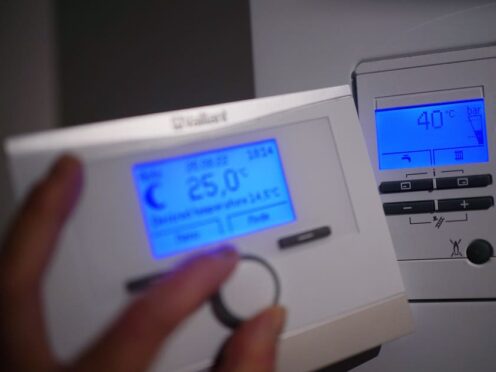
Three-quarters of people in Scotland have limited their energy use to afford other goods and services including food in the last year, according to new research.
The Survation poll for Advice Direct Scotland found that more than half (57%) are worried about being able to afford electricity, gas or oil over the coming year.
It found that 76% of adults in Scotland have either “slightly” or “significantly” limited their energy use over the past 12 months so they can pay for other goods and/or services, including food.
Half (50%) said they sometimes feel cold in their own home as a result, and a further 24% said they often feel cold.
Advice Direct Scotland said the UK’s energy market is “broken”, with many worried about how they will be able to pay for energy in the year ahead.
The charity is calling on the UK Government to use Wednesday’s Budget to introduce an opt-out social tariff which would automatically put struggling households on the cheapest deal.
Andrew Bartlett, chief executive of Advice Direct Scotland, said: “This poll indicates that hundreds of thousands of Scots are limiting their energy use so they can afford to pay for other goods such as food, and are left suffering in the cold in their own homes as a result.
“For those on prepayment meters, the cost of energy has left many unable to afford a top-up, often leaving people in debt.
“While bills might have fallen from their recent peak, they still remain high – and a majority of Scots are worried about being able to afford this over the coming year.
“These findings confirm that the UK’s energy market is broken, and we need an opt-out social energy tariff to help the most vulnerable households.
“This has widespread public support, and the Chancellor should use this week’s Budget to act.”
Advice Direct Scotland said that while regulator Ofgem will drop its cap on the amount suppliers are able to charge by £1,928 to £1,690 from April 1, this is still £552 more than what households were charged before the energy crisis hit in the autumn of 2021.
The poll of 1,043 Scots aged over 16, carried out in February, found that just over one in 10 (11%) said they are behind on their energy bills, with some struggling with debts of more than £1,000.
More than half of those with a prepayment meter (57%) said the cost of energy has often or sometimes caused them to run out of funds to keep it topped up.
Two-thirds (66%) of those questioned said they would support the UK-wide introduction of a social tariff.
The charity said a social energy tariff could be targeted at those most in need, with eligibility being determined by whether members of a household are in receipt of benefits or are on low incomes.
Advice Direct Scotland runs energyadvice.scot, which provides free, practical advice and information on energy-related matters and can be accessed at www.energyadvice.scot.
A Department for Energy Security and Net Zero spokesperson said: “We recognise the cost-of-living challenges families are facing, which is why we are spending £104 billion supporting households with their bills.
“A social tariff is about protecting vulnerable people and that’s exactly what we are doing by providing significant financial support for those who need it most.
“This includes £900 in cost-of-living payments, £150 to those on eligible disability benefits, plus a further £150 Warm Home Discount.”

Enjoy the convenience of having The Sunday Post delivered as a digital ePaper straight to your smartphone, tablet or computer.
Subscribe for only £5.49 a month and enjoy all the benefits of the printed paper as a digital replica.
Subscribe